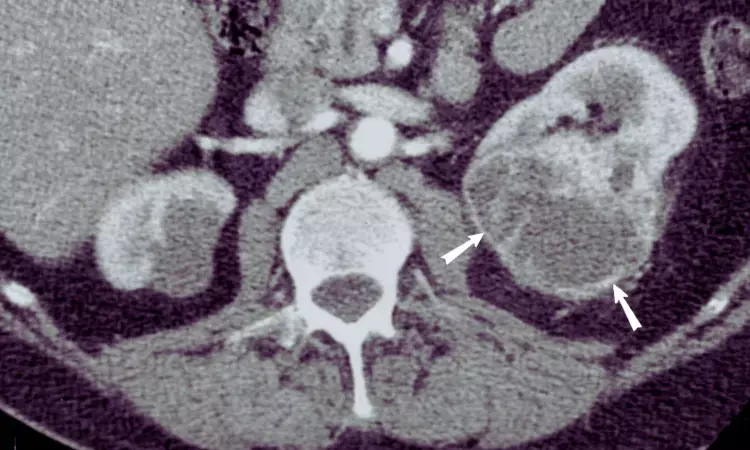- Home
- Medical news & Guidelines
- Anesthesiology
- Cardiology and CTVS
- Critical Care
- Dentistry
- Dermatology
- Diabetes and Endocrinology
- ENT
- Gastroenterology
- Medicine
- Nephrology
- Neurology
- Obstretics-Gynaecology
- Oncology
- Ophthalmology
- Orthopaedics
- Pediatrics-Neonatology
- Psychiatry
- Pulmonology
- Radiology
- Surgery
- Urology
- Laboratory Medicine
- Diet
- Nursing
- Paramedical
- Physiotherapy
- Health news
- Fact Check
- Bone Health Fact Check
- Brain Health Fact Check
- Cancer Related Fact Check
- Child Care Fact Check
- Dental and oral health fact check
- Diabetes and metabolic health fact check
- Diet and Nutrition Fact Check
- Eye and ENT Care Fact Check
- Fitness fact check
- Gut health fact check
- Heart health fact check
- Kidney health fact check
- Medical education fact check
- Men's health fact check
- Respiratory fact check
- Skin and hair care fact check
- Vaccine and Immunization fact check
- Women's health fact check
- AYUSH
- State News
- Andaman and Nicobar Islands
- Andhra Pradesh
- Arunachal Pradesh
- Assam
- Bihar
- Chandigarh
- Chattisgarh
- Dadra and Nagar Haveli
- Daman and Diu
- Delhi
- Goa
- Gujarat
- Haryana
- Himachal Pradesh
- Jammu & Kashmir
- Jharkhand
- Karnataka
- Kerala
- Ladakh
- Lakshadweep
- Madhya Pradesh
- Maharashtra
- Manipur
- Meghalaya
- Mizoram
- Nagaland
- Odisha
- Puducherry
- Punjab
- Rajasthan
- Sikkim
- Tamil Nadu
- Telangana
- Tripura
- Uttar Pradesh
- Uttrakhand
- West Bengal
- Medical Education
- Industry
AI Helps Predict Malignancy and Aggressiveness of Renal Masses Using CT Scans: Study

China: Researchers have reported that deep-learning models, when applied to preoperative CT images, can accurately predict the likelihood of malignancy and aggressiveness in incidentally detected renal masses.
According to a study by Dr. Ying Xiong from Fudan University in Shanghai, China, these findings could enhance clinicians' ability to diagnose and manage unexpected renal masses more effectively. The research was published online in Nature Communications on February 7, 2025.
"In most cases, the choice between active surveillance, percutaneous ablation, and surgical resection without a definitive pathological diagnosis," the researchers noted. "This highlights the urgent need for improved noninvasive methods to distinguish benign renal masses from aggressive tumors that require treatment and indolent tumors that can be managed with ablation or deferred intervention."
The increasing use of cross-sectional imaging techniques like CT has led to a rise in the detection of incidental kidney lesions, often resulting in more surgeries and ablations. However, since these findings do not significantly impact mortality rates, the concern of overdiagnosis arises. This underscores the importance of accurately assessing incidental kidney masses to guide appropriate clinical management.
Against the above background, the researchers investigated the potential of deep-learning models applied to CT imaging in classifying incidental renal masses. Their study analyzed 13,261 preoperative CT scans from 4,557 patients. To achieve this, the team developed two multiphase convolutional neural networks—one designed to predict malignancy and the other to assess tumor aggressiveness.
The study findings demonstrated the effectiveness of deep-learning models in classifying renal masses with high accuracy.
Model 1, developed to predict malignancy, achieved an area under the curve (AUC) of 0.87, surpassing the average performance of seven radiologists.
Model 2, designed to distinguish between aggressive and indolent tumors, recorded an AUC of 0.78.
Both models outperformed a radiomics-based model and a nephrometry score nomogram, which uses the RENAL Nephrometry Score to assess the likelihood of malignancy or high-grade pathology.
Additionally, the deep-learning tool enhanced radiologists' diagnostic accuracy, highlighting its complementary role in clinical practice. The researchers observed that radiologists showed greater diagnostic consistency when aided by the model, suggesting that human expertise and AI may be leveraging different yet synergistic approaches in renal mass classification.
"The study demonstrated that both deep-learning models outperformed radiomics-based models and the nephrometry score nomogram in predicting renal mass characteristics," the researchers wrote.
"These findings highlight the potential of deep-learning models as a non-invasive tool for assessing the likelihood of malignancy and tumor aggressiveness using preoperative multi-phase CT images. This advancement could significantly aid clinicians in making more informed decisions regarding renal mass management," they concluded.
Reference:
Xiong, Y., Yao, L., Lin, J. et al. Artificial intelligence links CT images to pathologic features and survival outcomes of renal masses. Nat Commun 16, 1425 (2025). https://doi.org/10.1038/s41467-025-56784-z
Dr Kamal Kant Kohli-MBBS, DTCD- a chest specialist with more than 30 years of practice and a flair for writing clinical articles, Dr Kamal Kant Kohli joined Medical Dialogues as a Chief Editor of Medical News. Besides writing articles, as an editor, he proofreads and verifies all the medical content published on Medical Dialogues including those coming from journals, studies,medical conferences,guidelines etc. Email: drkohli@medicaldialogues.in. Contact no. 011-43720751


